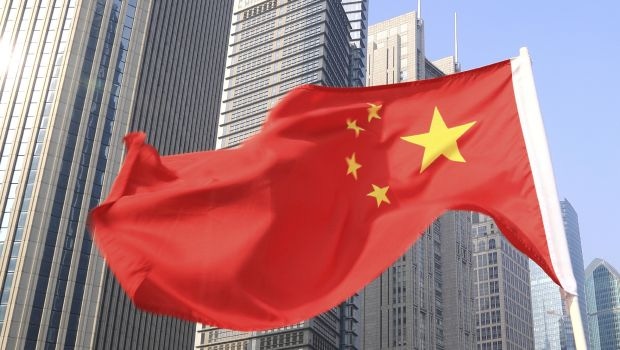WTO finds China over-subsidized its producers
WTO’s panel found Chinese price supports artificially drove up prices, increased Chinese production and decreased imports from other nations.

A World Trade Organization (WTO) dispute settlement panel found that China has provided trade-distorting domestic support to its grain producers well in excess of its commitments under WTO rules. The U.S. had argued that China’s market price support policy artificially raises Chinese prices for grains above market levels, creating incentives for increased Chinese production of agricultural products and reduced imports.
In a statement, U.S. Trade Representative Robert Lighthizer and Secretary of Agriculture Sonny Perdue indicated that this panel report is a significant victory for U.S. agriculture that will help American farmers compete on a more level playing field. This dispute is the first to challenge China’s agricultural policies that disregard WTO rules and shows that the U.S. will take whatever steps are necessary to enforce the rules and ensure free and fair trade for U.S. farmers, ranchers, workers and businesses.
“The United States proved that China, for years, provided government support for its grain producers far in excess of the levels China agreed to when it joined the WTO. China’s excessive support limits opportunities for U.S. farmers to export their world-class products to China. We expect China to quickly come into compliance with its WTO obligations,” Lighthizer said.
In December 2016, USTR requested that WTO establish a dispute settlement panel to consider whether China provides “market price support” for Indica (long-grain) rice, Japonica (short- and medium-grain) rice, wheat and corn in excess of China’s domestic support commitments. Market price support programs are some of the most trade-distorting agricultural policies and are, therefore, subject to clear limits under the WTO Agreement on Agriculture and a WTO member’s specific commitments. Under WTO rules, China may provide non-exempt support up to the de minimis level of 8.5% of the value of total production of a particular commodity, a commitment set out in China’s WTO accession agreement.
The panel report agreed with the U.S. that China provided domestic support to its agricultural producers in 2012, 2013, 2014 and 2015 well in excess of its WTO commitments. Specifically, the panel found that China had provided support in excess of permitted levels for and Japonica rice and wheat in every year. Each finding individually established that China broke its overall agricultural domestic support commitment for agricultural producers. For corn, the panel declined to make findings on the support provided to corn in 2012-15 given that China had apparently changed its program in 2016, just prior to WTO’s establishment of the panel.
“China illegally subsidized just three crops to the tune of $100 billion in a single year -- more than the entire U.S. farm safety net costs over the life of the farm bill,” House Agriculture Committee ranking member Michael Conaway (R., Texas) said. “Free trade does not exist without everyone playing by the same rules.”
Perdue added, “We know that America’s farmers and ranchers thrive in a market-oriented, rules-based global economy. That means all countries must play by the rules, which is why this finding is so important to U.S. agriculture.”
House Agriculture Committee chairman Collin Peterson (D., Minn.) called the ruling a “huge win” for farmers, and added, “I hope the panel will issue a similar ruling on Chinese corn subsidies, but it’s also my hope that this ruling can help our negotiators reach a positive path forward to reopen trade with China and reclaim the markets that the trade war has cost our farmers.”
The U.S. Wheat Associates (USW) also welcomed the findings. “We are very pleased that the Trump Administration has continued to support this dispute and a second case that challenges China’s administration of the 9.6 million metric ton tariff rate quota (TRQ) on imported wheat that its government agreed to when it joined the WTO,” USW president Vince Peterson said. “U.S. farmers have been hurt by China’s overproduction and protectionist measures for too long, and it’s past time for China to start living up to its commitments.”
In its response to the WTO ruling, USW said, according to a 2016 Iowa State University study sponsored by USW, China’s domestic market support price of almost $10/bu. for wheat at the time cost U.S. wheat farmers between $650 and $700 million annually in lost income by preventing export opportunities and suppressing global prices. As a result, the Chinese government has purchased and stored enormous stocks of domestic wheat.
The U.S. Department of Agriculture now estimates that, by June 2019, China will hold 140 mmt of wheat, accounting for 52% of global ending stocks. Not coincidentally, this hugely disproportionate stock holding is almost the same as the cumulative 130 mmt of wheat that China has not purchased under its WTO TRQ since 2001. USW said this is a fundamental supply factor that continues to depress market prices. It also hurts Chinese flour millers, who are forced to purchase overpriced, low-quality domestic wheat from these stocks, as well as their customers, who pay more for the flour.
“The past two decades have been a lost opportunity for the WTO negotiating function as major countries like China have refused to take on new responsibilities,” Peterson said. “Perhaps this unfortunate situation will be the wake-up call countries need to realize that restricting trade and unfairly advantaging domestic industries in global markets winds up hurting everyone. Meanwhile, we applaud the use of the WTO dispute settlement and counter-notification processes to push back when countries violate rules on agricultural support.”
About the Author(s)
You May Also Like




.png?width=300&auto=webp&quality=80&disable=upscale)
